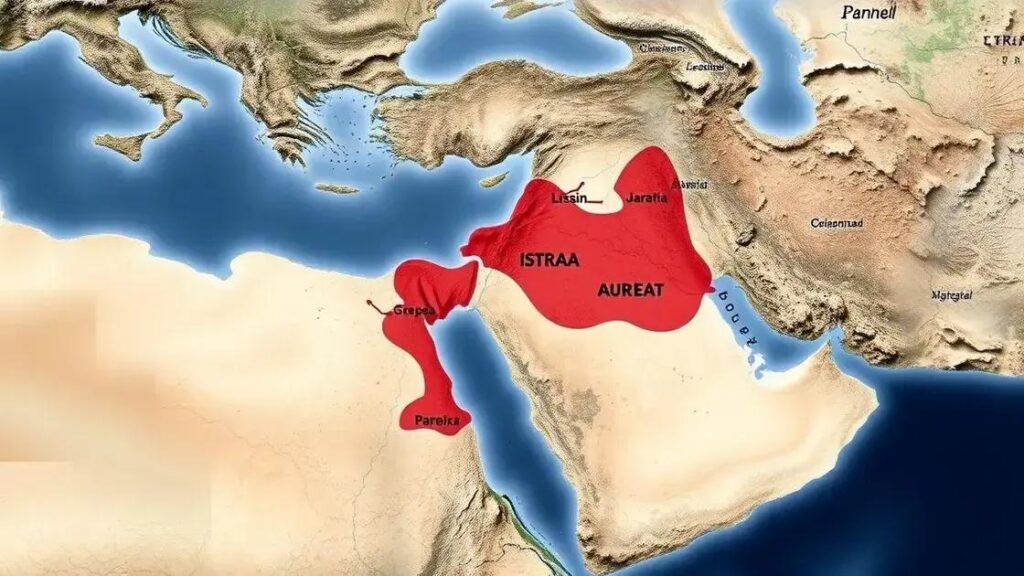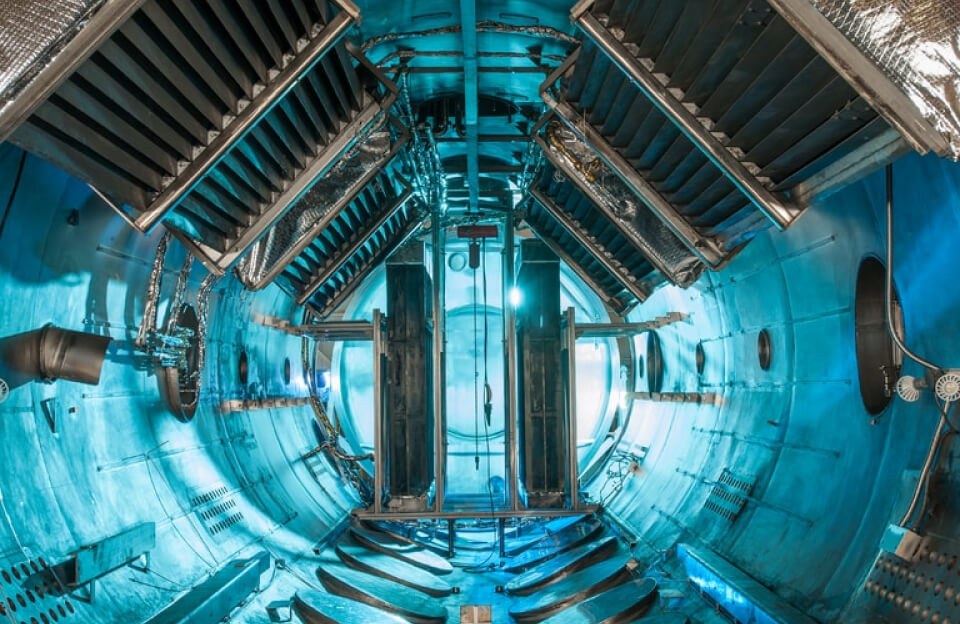The Middle East conflict is a multifaceted issue stemming from historical tensions, religious differences, and geopolitical rivalries, with Iran’s regional influence, potential Israeli strikes, rising oil prices, and the pursuit of peace significantly impacting global dynamics and requiring multifaceted solutions for lasting stability.Middle East conflict pervades discussions about global stability and security. What’s driving these tensions, and why should we care? Let’s dive in.
Understanding the background of the Middle East conflict

The Middle East conflict’s roots are complex and deeply intertwined with historical, religious, and political factors. Centuries of tension between various groups and nations have contributed to the ongoing instability. The region’s strategic importance, vast oil reserves, and religious significance have all played significant roles in fueling conflicts.
Key historical events, such as the establishment of Israel in 1948 and subsequent wars, significantly shaped the current landscape. The displacement of Palestinian populations and unresolved land disputes continue to be major points of contention. These issues, along with competing political ideologies and foreign interventions, have created a volatile and unstable environment.
Religious differences between various groups, including Muslims, Christians, and Jews, have often been exploited to fuel conflict. These religious divisions are frequently intertwined with political and territorial disputes, making the conflict even more complex and challenging to resolve. Understanding these deeply rooted historical and religious factors is crucial to comprehending the ongoing tensions.
Colonialism’s legacy also continues to impact the region. Artificial borders drawn by colonial powers without regard for existing ethnic or religious boundaries have further exacerbated tensions and contributed to ongoing conflict. The aftermath of colonial rule left many countries with weak governance structures and unstable political systems, creating fertile ground for conflict and unrest.
Finally, the influence of external powers cannot be ignored. Major global players often have significant interests in the region, often involving economic and strategic partnerships. These interests, combined with the ongoing conflict, can inadvertently fuel regional tensions and destabilize the region further.
The role of Iran in regional tensions

Iran’s role in Middle East tensions is multifaceted and complex, marked by a long history of regional influence and involvement in various conflicts. Iran’s geopolitical strategy often aims to counter perceived threats from both regional rivals and Western powers. This strategy frequently involves supporting allied groups and militias, which can exacerbate existing tensions.
Iran’s nuclear program remains a significant source of international concern and a major driver of regional instability. Concerns about Iran’s nuclear ambitions have led to international sanctions and heightened tensions with Western nations, further complicating the regional dynamics. These tensions often spill over into regional conflicts, adding to the instability.
Support for regional proxies is another key aspect of Iran’s regional involvement. Iran’s support for various groups and militias in countries like Syria, Lebanon, and Yemen has significantly increased tensions in those areas and broadened the scope of regional conflicts. This backing contributes to proxy conflicts and fuels regional rivalries.
Ideological differences also play a crucial role. Iran’s Shiite Islamic ideology often contrasts with the predominantly Sunni populations in many neighboring countries. This religious divide can exacerbate tensions, fueling sectarian conflicts that further destabilize the region. These religious differences often intertwine with political and geopolitical disputes.
Economic interests are also relevant. Iran’s economic interests in the region, particularly regarding oil and gas resources, can influence its foreign policy decisions. Competition over these resources and control of trade routes can contribute to conflicts with neighboring countries. Therefore, economic factors are often a hidden but significant driver of conflict.
Consequences of Israeli strikes on Iran

The consequences of potential Israeli strikes on Iranian targets are far-reaching and highly unpredictable, potentially escalating tensions in the already volatile Middle East. Military escalation is a significant concern. An attack could trigger a retaliatory response from Iran, potentially involving its proxies in the region, leading to a wider conflict.
Regional instability would almost certainly increase. A strike could destabilize the region further, potentially igniting conflicts in neighboring countries or leading to increased terrorist activity. This instability would affect the regional balance of power and the security of neighboring states.
Global oil markets would be significantly impacted. Any disruption to Iranian oil production and export capabilities could send global oil prices soaring, leading to economic instability worldwide. The impact on energy supplies and global prices would be considerable and could cause a worldwide economic crisis.
International relations would also be severely strained. Such an attack could trigger international condemnation and potentially lead to further diplomatic isolation of Israel. The international community’s reaction would have significant geopolitical consequences. It could even lead to sanctions.
Finally, the humanitarian cost of a potential conflict is a grave concern. A wider war could lead to massive civilian casualties and widespread displacement of populations. This humanitarian impact would be devastating and cause massive suffering to innocent people.
Global economic implications of rising oil prices

Rising oil prices have significant and far-reaching global economic implications, impacting various sectors and countries differently. Inflationary pressures are a major concern. Higher oil prices increase the cost of transportation, manufacturing, and many other goods and services, leading to higher prices for consumers and businesses.
Economic growth can be stifled. Increased energy costs can reduce business investment and consumer spending, leading to slower economic growth, particularly in energy-intensive industries. This can lead to job losses and a decrease in overall economic activity.
Trade imbalances can worsen. Countries heavily reliant on oil imports will experience a larger trade deficit as their oil import bills increase. This can lead to currency depreciation and economic instability for these countries. The impact on trade will be disproportionate.
Geopolitical tensions can escalate. High oil prices can exacerbate existing geopolitical tensions as countries compete for resources and influence. This can create instability and uncertainty in global affairs. Competition for oil will increase the risk of conflict.
Energy security becomes a crucial issue. Rising oil prices highlight the importance of energy security and the need for countries to diversify their energy sources and reduce their reliance on fossil fuels. The search for alternative energy sources will intensify.
Future outlook: Will peace ever be achievable?

The future outlook for peace in the Middle East remains uncertain and depends on several complex and interconnected factors. Addressing the root causes of the conflict is paramount. This includes resolving the Israeli-Palestinian conflict, addressing sectarian divisions, and promoting inclusive governance structures in various countries. Without addressing these deep-seated issues, lasting peace will remain elusive.
Regional cooperation is crucial. Greater cooperation among regional actors is essential to de-escalate tensions and establish mechanisms for conflict resolution. This would require a significant shift in the regional dynamics and a willingness to compromise.
International involvement will continue to play a role. International efforts aimed at promoting dialogue, providing humanitarian assistance, and enforcing international law will remain vital in supporting peace efforts. However, external intervention must be carefully managed to avoid exacerbating existing tensions.
Economic development is a key factor. Sustainable economic development can contribute to stability and reduce the root causes of conflict. Investing in education, job creation, and infrastructure development can create opportunities for peace and reduce poverty.
Promoting human rights and democratic governance is also important. Respect for human rights and democratic governance are crucial for fostering a just and peaceful society. This would require substantial political reforms in various countries.
In conclusion, the Middle East conflict is a deeply complex issue with a long and troubled history. While the path to lasting peace remains challenging, understanding the historical context, regional dynamics, and global implications is crucial for fostering dialogue and promoting constructive solutions. Addressing the root causes of conflict, fostering regional cooperation, and promoting sustainable economic development are vital steps toward a more peaceful and stable future in the region. The international community has a critical role to play in supporting these efforts and encouraging dialogue among all stakeholders. Although the road ahead is undoubtedly fraught with challenges, a commitment to diplomacy and a shared vision for peace offers a glimmer of hope for a more peaceful Middle East.
FAQ – Frequently Asked Questions about the Middle East Conflict
What are the main historical roots of the Middle East conflict?
The conflict’s roots are complex and deeply intertwined with historical events, religious differences, and political power struggles dating back centuries. Key events like the creation of Israel in 1948 and subsequent wars have significantly shaped the current landscape, along with unresolved land disputes and competing political ideologies.
How does Iran’s involvement contribute to regional tensions?
Iran’s regional influence, support for proxy groups, its nuclear program, and ideological differences with neighboring countries significantly contribute to the instability. These actions often fuel conflicts and increase tensions with both regional rivals and Western powers.
What are the potential consequences of Israeli strikes on Iran?
Potential consequences include military escalation, regional instability, disruptions to global oil markets, strained international relations, and a significant humanitarian cost. An attack could trigger a wider conflict with devastating effects.
How do rising oil prices impact the global economy?
Rising oil prices lead to inflationary pressures, reduced economic growth, worsened trade imbalances, increased geopolitical tensions, and highlight concerns about energy security. The impact is felt globally, disproportionately affecting countries reliant on oil imports.
What are the prospects for achieving peace in the Middle East?
Achieving lasting peace requires addressing the root causes of conflict, promoting regional cooperation, and fostering sustainable economic development. International involvement, respect for human rights, and inclusive governance are also critical components for achieving a more stable and peaceful future.
What role does the international community play in resolving the conflict?
The international community plays a vital role through diplomatic efforts, humanitarian aid, and support for conflict resolution mechanisms. However, external intervention must be carefully managed to avoid unintended consequences and to support the efforts of regional actors towards a peaceful resolution.

Gabriel de Jesus is a journalist specialized in digital media and the founder of the blog Guia da Notícia. Passionate about clear and accessible information, he launched the platform in 2016 to deliver reliable news on politics, economics, society, and culture. With a direct style and simple language, Gabriel has turned the blog into a regional reference for independent journalism.



